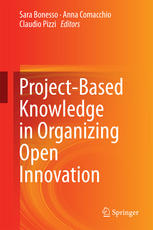

Most ebook files are in PDF format, so you can easily read them using various software such as Foxit Reader or directly on the Google Chrome browser.
Some ebook files are released by publishers in other formats such as .awz, .mobi, .epub, .fb2, etc. You may need to install specific software to read these formats on mobile/PC, such as Calibre.
Please read the tutorial at this link: https://ebookbell.com/faq
We offer FREE conversion to the popular formats you request; however, this may take some time. Therefore, right after payment, please email us, and we will try to provide the service as quickly as possible.
For some exceptional file formats or broken links (if any), please refrain from opening any disputes. Instead, email us first, and we will try to assist within a maximum of 6 hours.
EbookBell Team

4.7
76 reviewsEnriching understanding of the current theoretical debate on project-based learning and R&D sourcing, ‘Project-based Knowledge in Organizing Open Innovation’ draws on innovation literature and knowledge-based perspectives to solve open problems in the relationship between knowledge development at project level and how firms organize product innovation combining in-house R&D activities with inbound open innovation.
Through field research in different industrial settings (pharmaceutical, automotive and machine tools) and with complementary methodological approaches, this book provides empirical evidence on how project knowledge features affect sourcing decisions at firm level.
Due to the emerging interest in the management literature on project-based organizations and on the relevance of project forms of organizing in a knowledge-based economy, this volume will appeal to scholars and students in business and management, in particular those in innovation management, organization theory and strategic management.
Addressing the still open issue of how the firm level should be complemented by studies at the project level of analysis, this book provides theoretical and empirical arguments on the advantages of a more fine-grained level of analysis to understand how firms organize their innovation processes across boundaries.